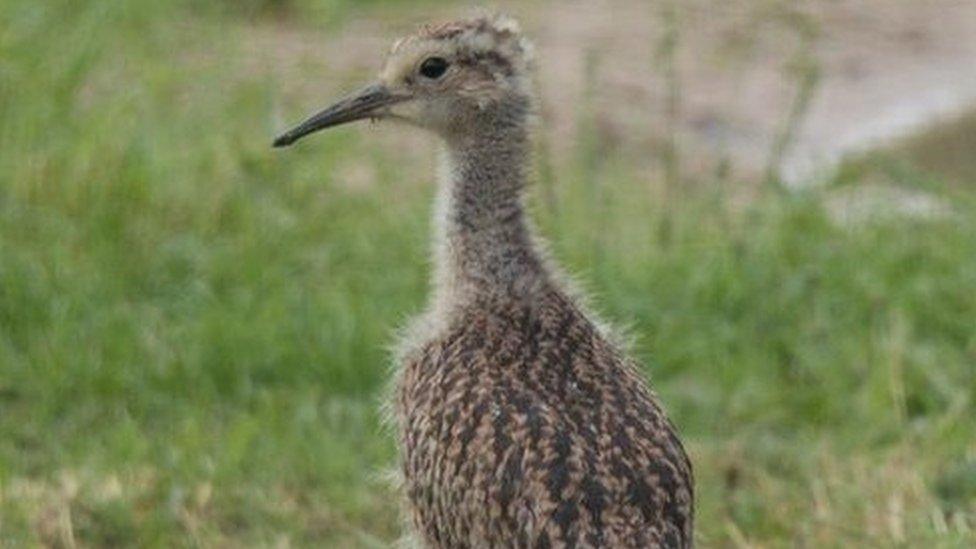Pensthorpe: Website tracks released curlews after eggs rescue
- Published
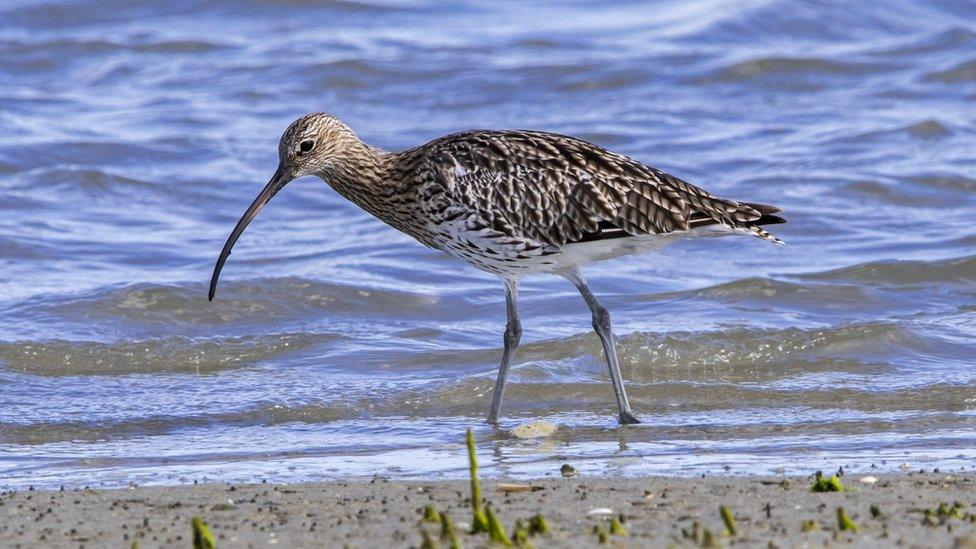
Curlew on North Sea shoreline
Birdwatchers will be able to keep track of rescued curlews with a website dedicated to following their progress.
Declining numbers have seen the curlew added to the UK Red List, external for conservation as an endangered species.
The website - called the Curlew Recovery Project - will allow people to see where released curlews go, thanks to GPS and radio tracking.
Chrissie Kelley, of the Pensthorpe Conservation Trust, said it was "an absolute privilege" to protect them.
The trust is working with the British Trust for Ornithology (BTO), Natural England and the Ministry of Defence (MOD) to rescue, rear and release curlews.
The MOD helps to transport eggs from the airfields to Pensthorpe in special incubators where they are protected and hatched, then reared for about 55 days.
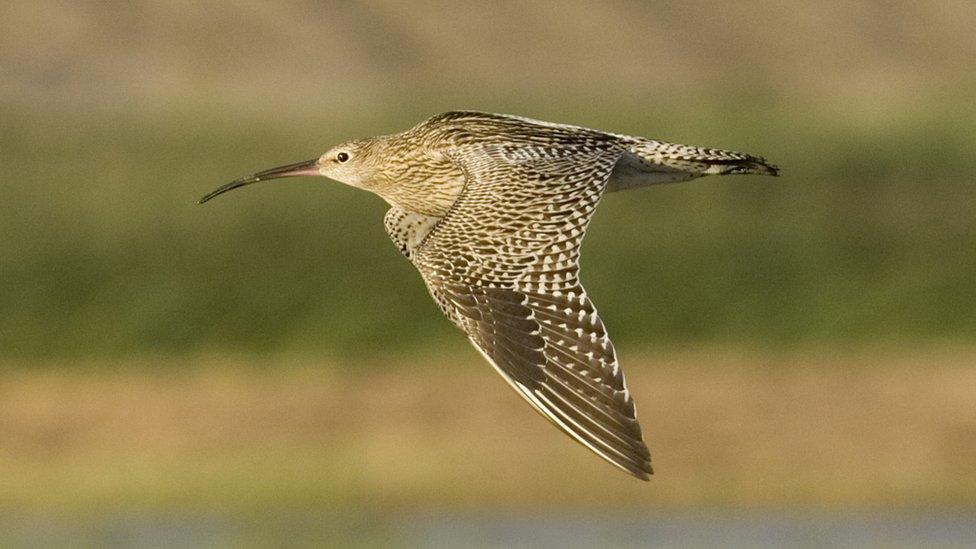
A curlew captured in flight over Cley Marshes in Norfolk
"Curlews like to nest on big expanses of grassland and we have quite a few airbases in the East of England that have just the perfect habitat," Ms Kelley, head of species management.
"Every year, airfields apply for licences to remove the eggs or to destroy the nests, so the project is a win-win," she added.
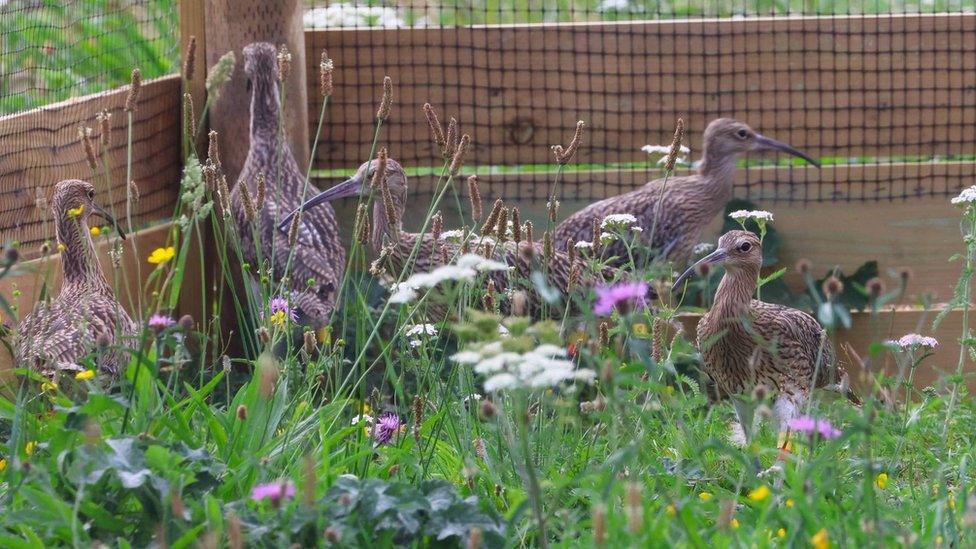
The species has suffered significant declines over the past 40 years due to loss of habitat and predators
Each bird is fitted with GPS tracking and taken to dedicated release sites, such as Wild Ken and Sandringham in Norfolk, where they are acclimatised to wild conditions before they are released.
"Understanding what happens to them once they are released is so important," Ms Kelley said.
"The UK has 25% of the world's breeding population of the Eurasian curlew but unfortunately rearing has become so poor that they're in real danger, numbers are declining hugely.
"They are so chatty, very vocal - even when the eggs are about to hatch you can hear the chicks cheeping away to each other.
"They are real characters, constantly foraging. it is an absolute privilege to rear them."
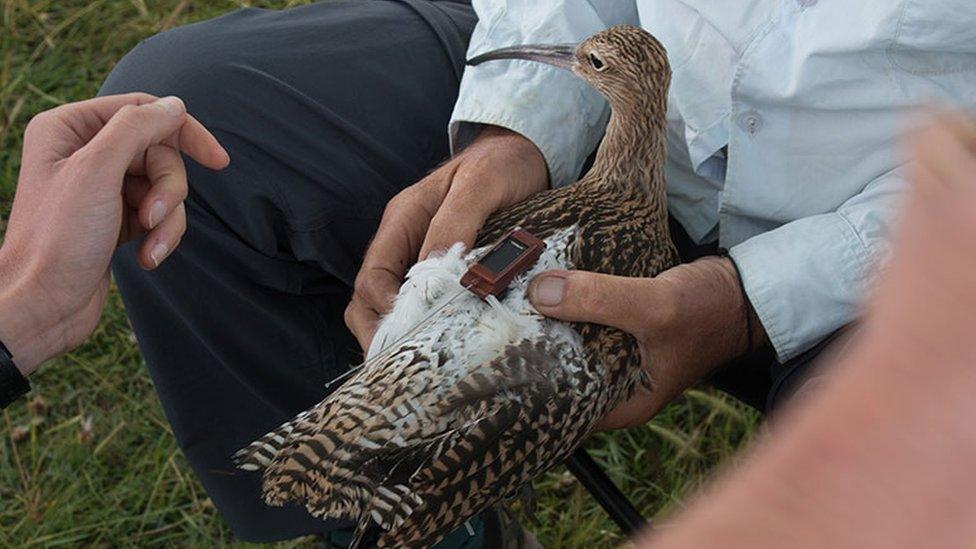
Rescued and reared curlews are fitted with tracking devices so their progress can be monitored
Each released bird has a unique flag and colour combination on its legs, so eagle-eyed curlew spotters can identify where they have come from.
"We know one has gone off down to Brittany, another to southern Ireland and to Guernsey - but most have stayed around The Wash," Ms Kelley said.
She added that many curlews can be spotted on the Norfolk coast in the autumn after their late summer release.

Find BBC News: East of England on Facebook, external, Instagram, external and Twitter, external. If you have a story suggestion email eastofenglandnews@bbc.co.uk, external
Related topics
- Published24 August 2022
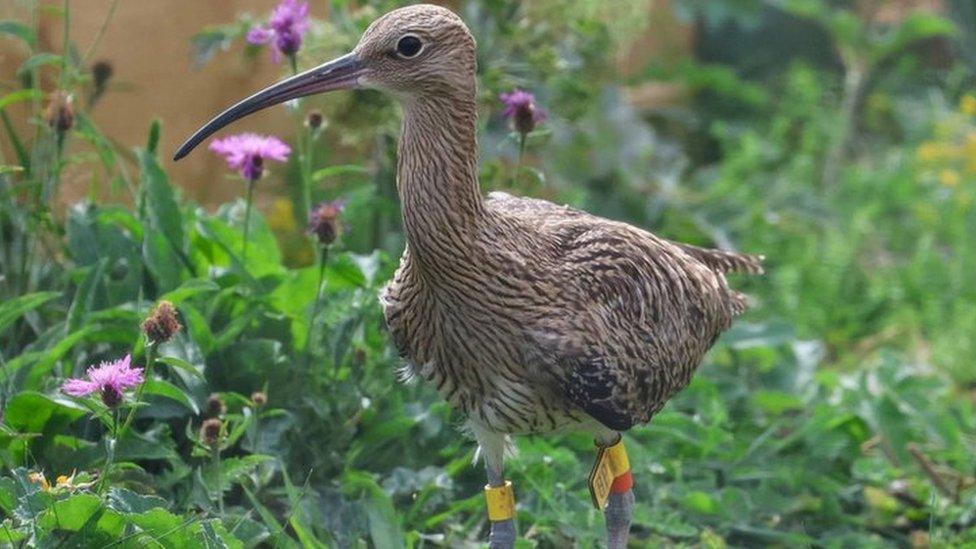
- Published7 June 2022
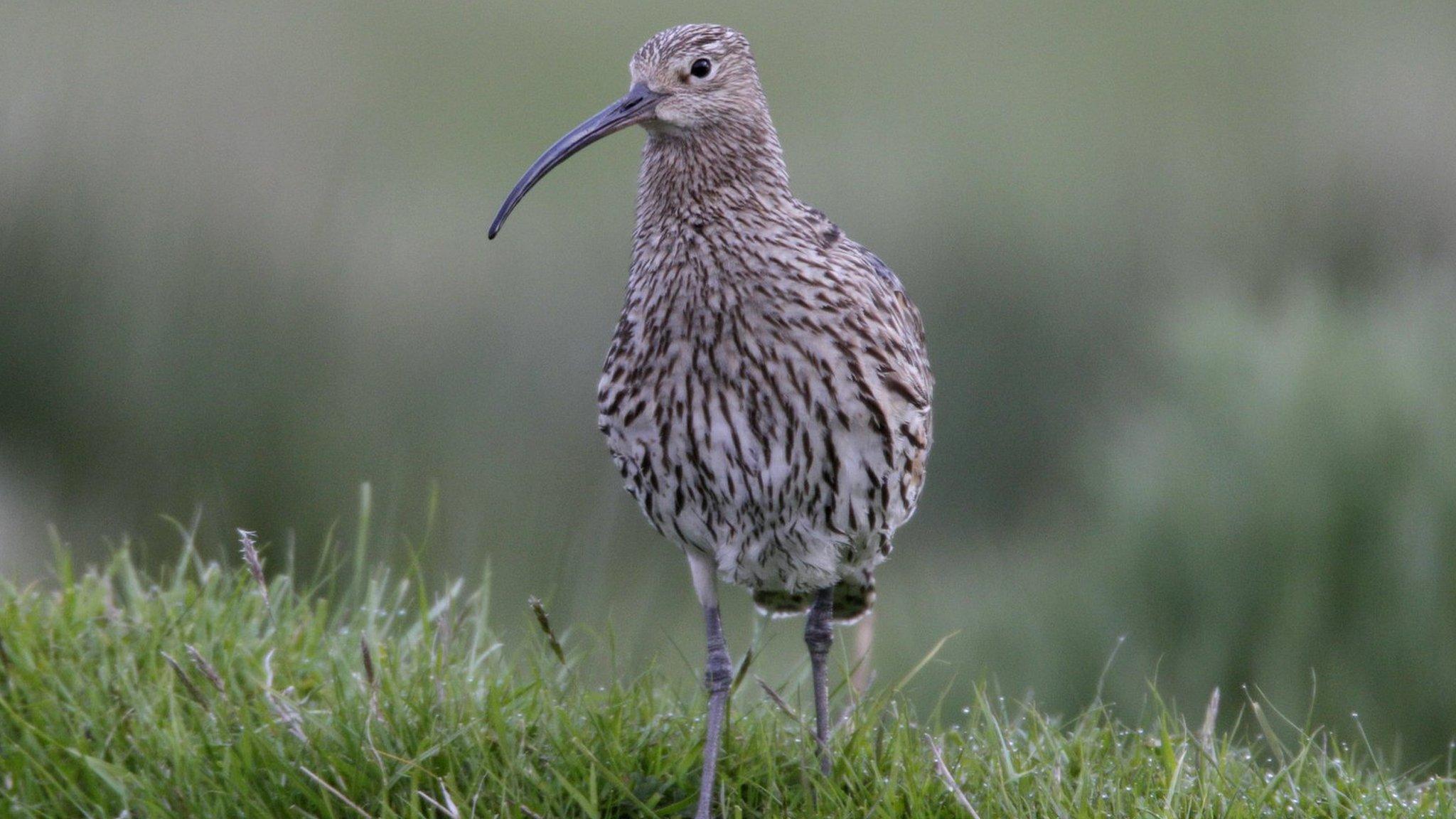
- Published19 August 2021
